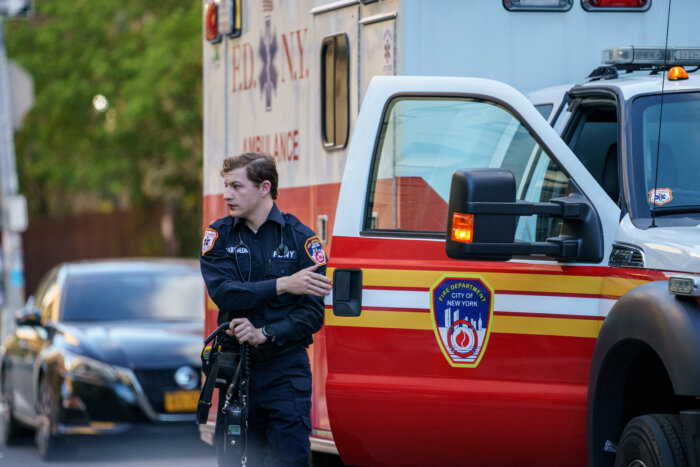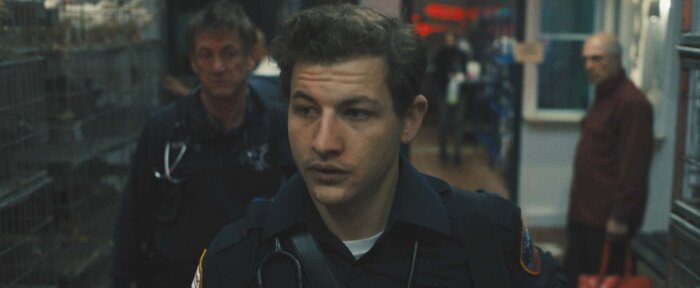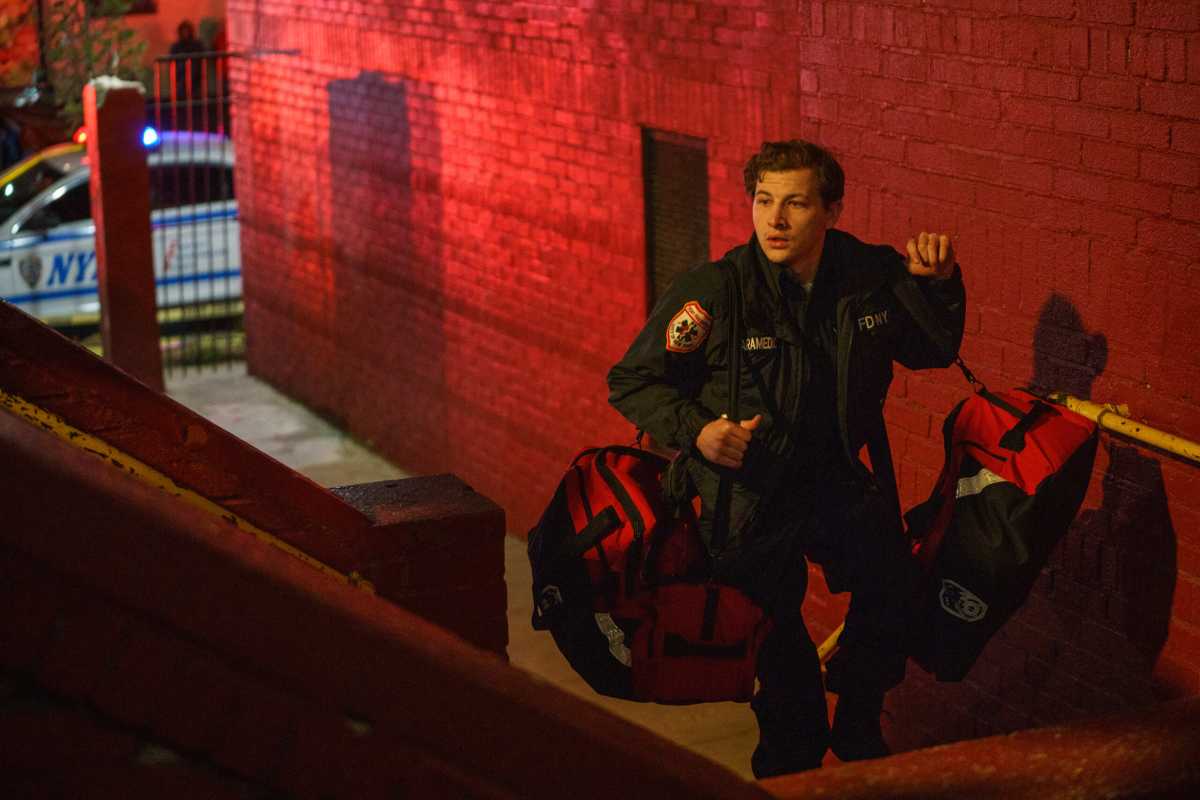If there’s one takeaway from ‘Asphalt City‘, Jean-Stéphane Sauvaire’s latest feature starring Tye Sheridan and Sean Penn, it’s that it feels hyperreal from the very first opening shot—and it doesn’t lose that lens for a second.
The film tells the tale of New York City paramedic Ollie Cross (Sheridan) and his ways of navigating the gritty and chaotic streets of Brooklyn along with his partner, Gene Rutkovsky (Penn). The story was originally based on the book ‘Black Flies’ by Shannon Burke, though what we see on screen is an accumulation of evolutions, according to its star, Sheridan.
The actor, who also produced the film, was drawn into the concept by the director’s work (“Johnny Mad Dog” and “A Prayer Before Dawn”) and the intensity that came off the screen from it. Sauvaire is unique in the sense that he brings the real elements to set, instead of trying to create them.

For one, the director and both Sheridan and Penn worked with medics on shifts doing ride-alongs, and in classes working on skills for quite some time before shooting. Sauvaire also recruited people from the community to play in certain scenes, almost in a way to tell their own truth through a cinematic improv ride.
“Those kinds of filmmakers really excite me,” says Sheridan. “[He] was doing research for three, four years to build the fabric and the landscape of the movie. And a lot of people that were involved in the film that were casted were just folks that John-Stéphane met out and about on the street and medics that he got in touch with.”
Some of the medics were from Wyckoff Heights Medical Center in Brooklyn, and through spending time with them, Sheridan was able to bring a technical reality to his role—but also, a more personal understanding.
“How they are on the job, how they are with their patients and how they are with each other…I think those were the kind of things that I was mostly interested in learning,” the actor notes.
“Then there’s the whole technical side of, well, who’s grabbing what bags and how do they get the stretcher out, and we would be in classroom sessions for 4, 5, 6 hours learning how to do CPR and how to intubate and learning how to give someone an IV and how to assess a patient from a more clinical standpoint.”
As for the scenes with “non-actors”, those moments in the film mark some of the most interesting. ‘Asphalt City’ goes through many different dire situations in its plot, and the reality is, paramedics are called at people’s worst moments in time (with childbirth being the exception.) We as audiences see the emotional weight of the job through the film, but also, the raw reality of it all during those specific moments of conversation.

“I kind of fell into film at an early age and the very first film I worked on (‘The Tree of Life’, which also starred Sean Penn), I never read a script. I never prepared any lines, so it was all off the cuff. In a way that’s always comfortable to me, working with non-actors and just responding to them,” says Sheridan.
“I actually really liked that because you know what the scene is about and what you kind of need from it, and so it’s almost like this chess match. You’re trying to figure out how to get there with someone, and they’re throwing you curve balls constantly. The scene may go in one direction or another, and then you have to try to figure out how to bring it back to the center.”
The film takes place in today’s day and age in East New York, while the book was set in the 1990s in Harlem. But overall, ‘Asphalt City’ takes note from the people who inspired the plot on top of the original author’s POV as a NYC paramedic for five years during that time.
“Certain scenes are pulled directly from the book and then others are created from a story we heard from one of the medics that we were working with or somebody that you knew in the past. And so it’s really a melding of stories where you’re trying to balance reality and then the work that it’s based on,” Sheridan notes.
Sheridan’s Ollie Cross acts as the compass in the film, he’s in his 20s, and like most at that age (and beyond), he’s trying to navigate the world… just in an extremely demanding, and heroic position. We hear sirens every day in the world and turn on the news to see tragedy, or hear about death—but a lot of people are able to scroll, ignore or even forget what they see. Paramedics can’t do that.

“I hope [audiences] take away an understanding of what paramedics experience on a day-to-day basis, because they’re the people that we call in our worst moments. You’re going to call a paramedic when you’re dying, and that person who shows up carries a lot of responsibility. They carry this role in our society, a very important one, which is to kind of shepherd people to health and to the light,” Sheridan finishes.
“I think they’re undervalued, they’re under-appreciated, and largely because people just don’t understand what their lives are like. So I really hope it brings an understanding to the EMS community and maybe, if anything, society could be more supportive of them in that regard.”
‘Asphalt City‘ hits theaters March 29.


























